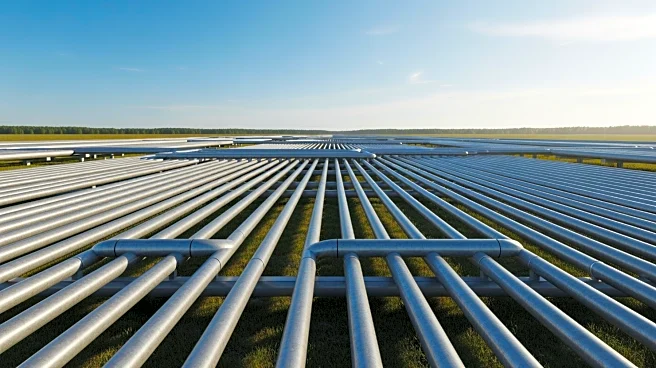What's Happening?
Despite a challenging year for oil prices, Canadian pipelines have shown resilience. The West Texas Intermediate (WTI) oil price has dropped 17% year-to-date, influenced by slow economic growth in the
U.S. and global oversupply. However, pipelines have maintained stability due to long-term contracts and high barriers to entry, making them less sensitive to economic fluctuations. Transporting oil and gas via pipelines is significantly cheaper than alternatives like trucks or rail, contributing to their dominance in North America.
Why It's Important?
The stability of pipelines is crucial for the North American economy, which heavily relies on oil and gas transportation. Pipelines offer revenue stability and are less affected by oil price volatility, making them attractive investments. They also provide reliable dividends, as seen with companies like Enbridge and TC Energy, which have consistently increased dividends despite economic downturns. This sector's resilience highlights its importance in energy infrastructure and investment strategies.
What's Next?
Investors may continue to favor pipeline companies due to their stable business models and attractive yields. As the energy sector evolves, pipelines will likely remain integral to oil and gas transportation, supporting economic stability. The focus may shift towards enhancing pipeline efficiency and exploring new technologies to further reduce costs and environmental impact.
Beyond the Headlines
The pipeline sector's insulation from oil price volatility underscores the importance of infrastructure investments in energy security. As global energy dynamics shift, pipelines could play a role in transitioning to more sustainable energy solutions, balancing economic needs with environmental considerations.











